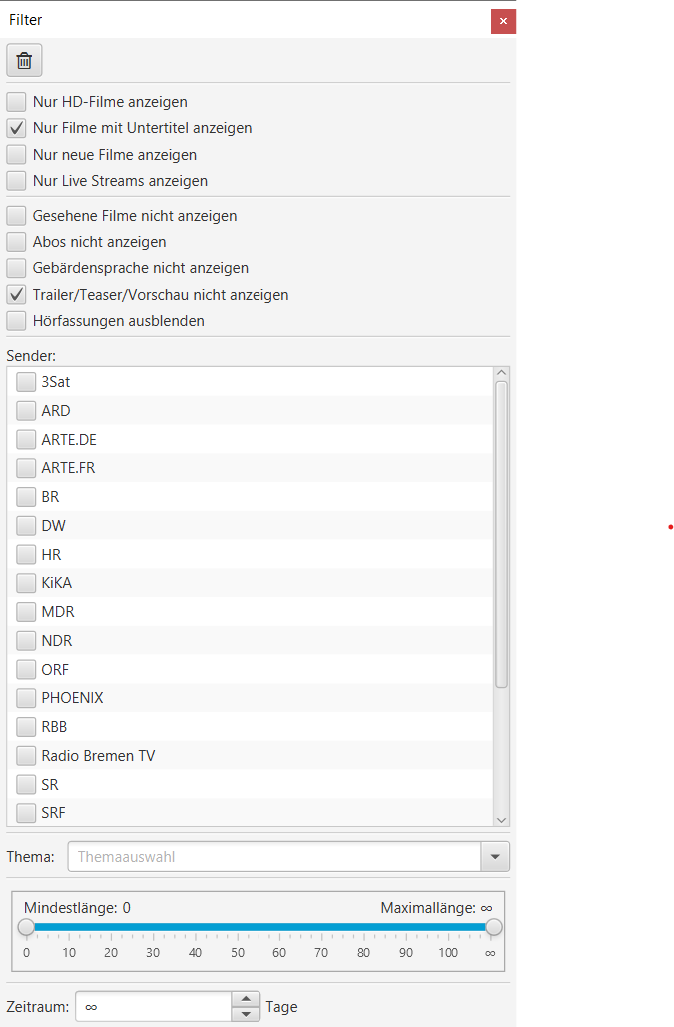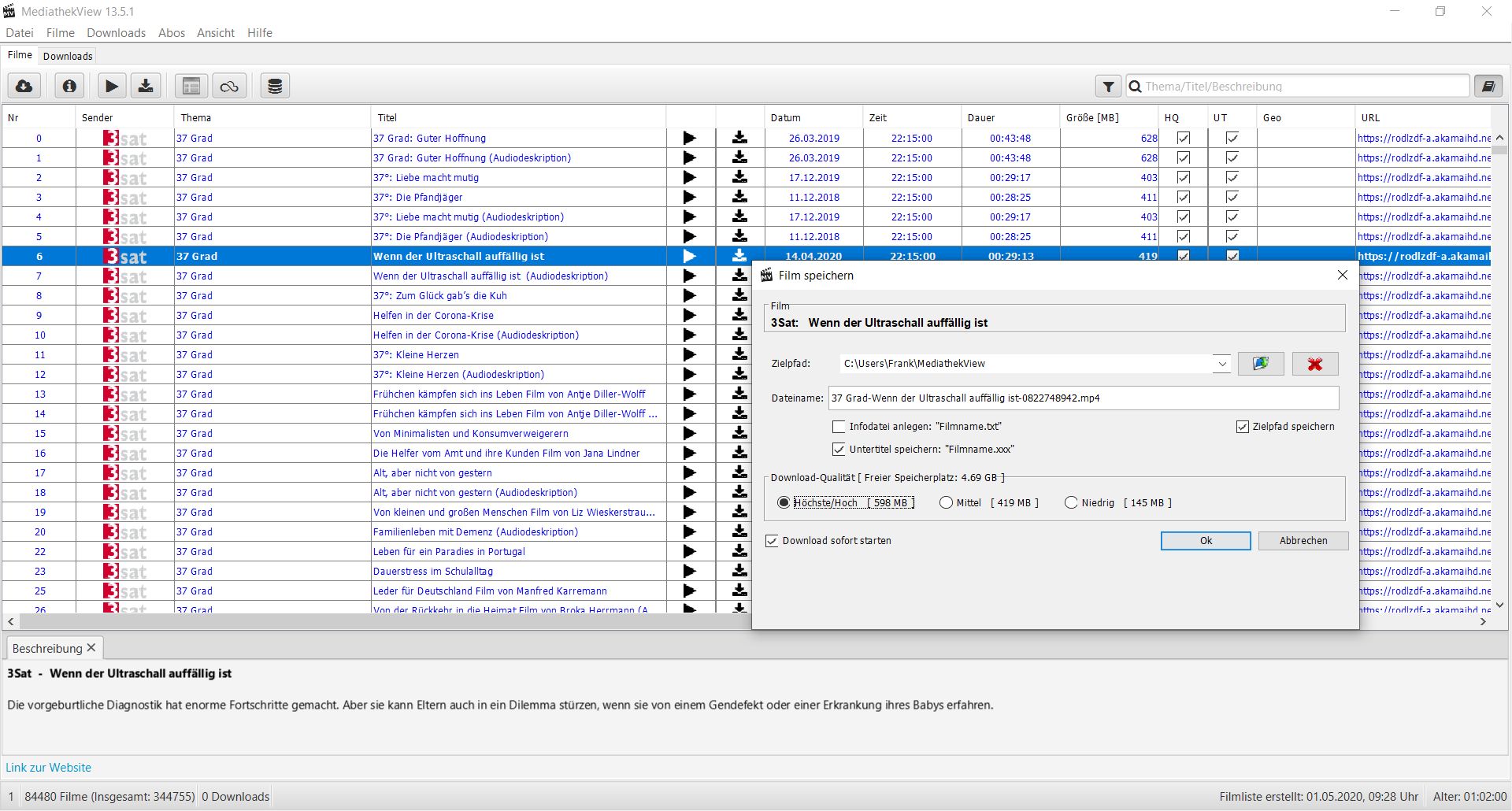Something I like to do when learning Spanish is search for words and phrases used in television programs aired on RTVE, which is basically Spain's state-owned public broadcasting service. The reason I like to do this is because many of their programs have transcripts that can be searched using the very simple CTRL+F. In this way, if I want to see, first hand, how a particular word or phrase is used in a real-life (or sometimes fictional) setting, I don't have to watch the entire program; I can just watch the portion that contains the word or phrase of interest. I'm able to easily find the programs I want by using an advanced Google search like this:
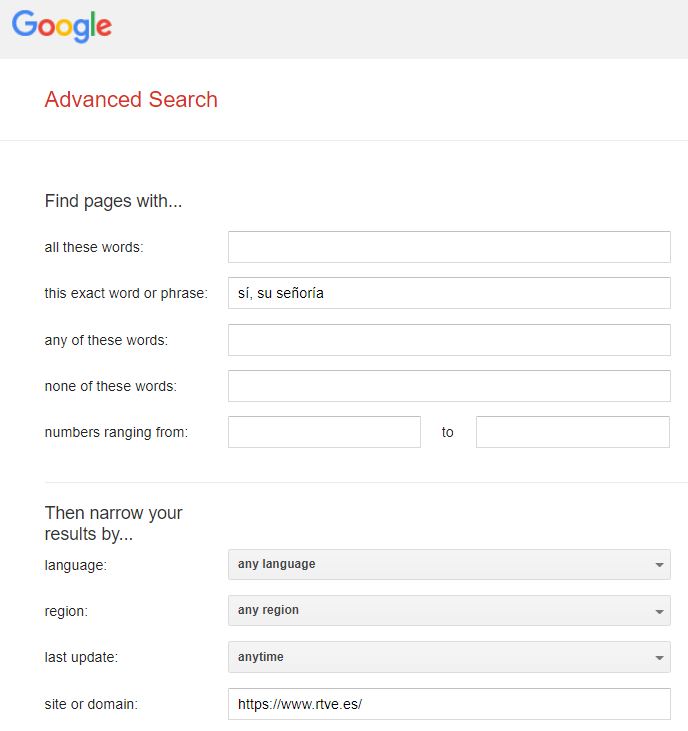
I then add the Spanish word for "transcription" in the search bar, and then apply a video filter to the search:
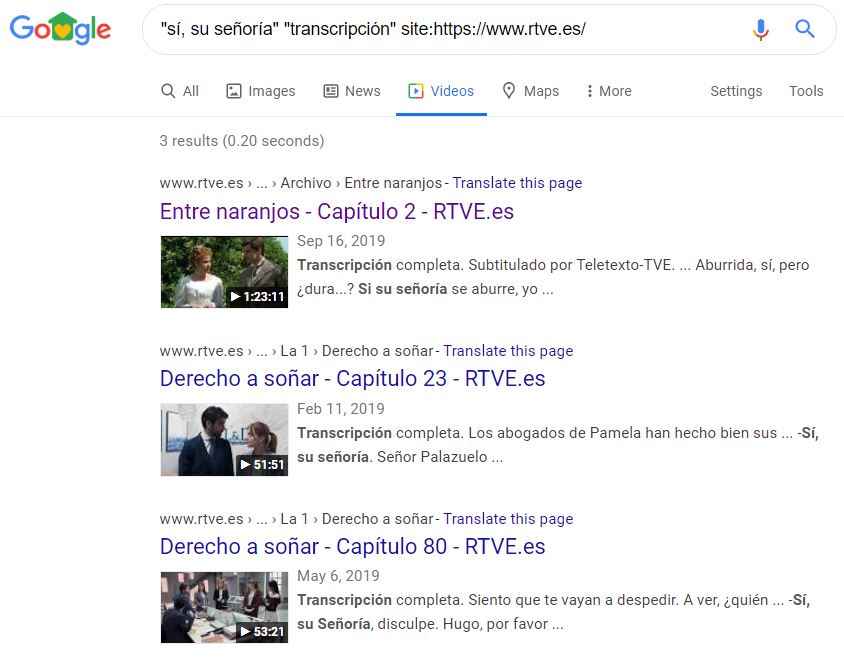
Though it is true not every program is viewable for those who live in the United States, many of the programs are available. The first result that was returned to me is just such a program. When I click on the link to the program, I am taken to a screen that looks like this:
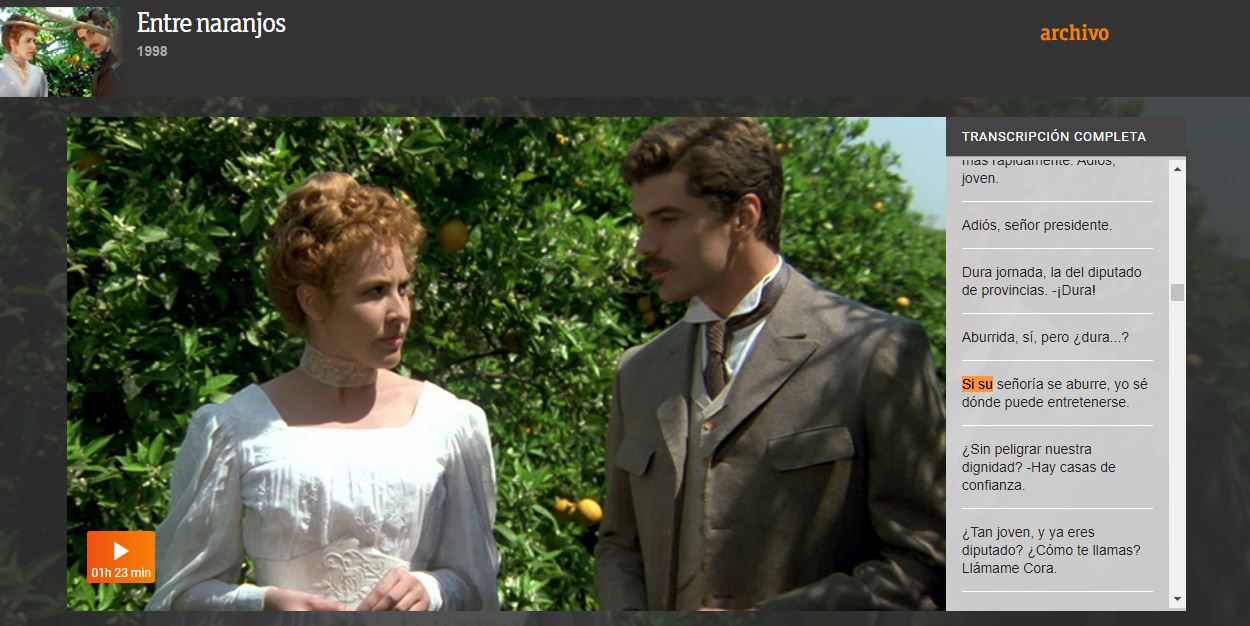
Notice how the transcript is on the right of the viewing area. Notice also how "sí su" is highlighted. A CTRL+F search took me straight to the phrase I was looking for without even having to type it all out. Now all I have to do is click on the transcript section where the highlighted phrase is and I will be taken straight to that point in the program. It's been a really helpful way for me to try to improve my listening skills in Spanish and I would now like to do the same with German, but I haven't easily found anything similar to Spain's RTVE, which I believe has set up their program viewing in a way that is also helpful to the hearing impaired.
Do any of you know of a way in which I could do a similar search for words and phrases in German television programs or films?
Does Germany have anything like Spain's RTVE?

